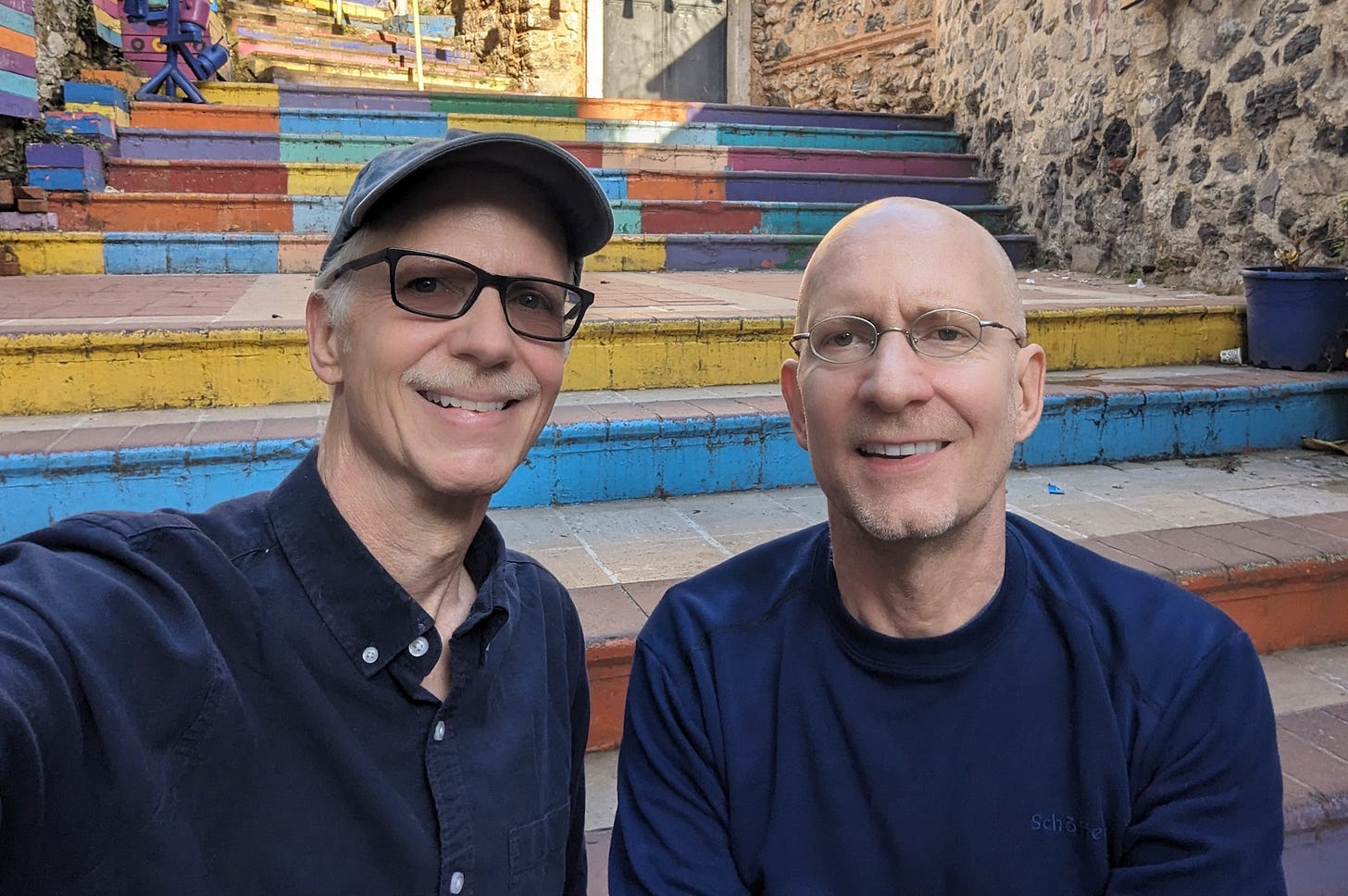Should You Travel to Homophobic Countries?
It's your call. But yeah, probably.
For the audio version of this article, read by the author, go here.
One issue that has long vexed LGBTQ travelers: should we travel to homophobic countries?
In our seven years of nomading, the two of us have lived in many such countries: Turkey, Georgia, Hungary, Bulgaria, Serbia, and Malaysia.
Even in 2024, the governments of these and many other countries are still openly hostile to LGBTQ folks.
And people often ask us questions about this:
Should I boycott these countries — as a matter of principle, and also as a way to pressure these countries to change?
Are homophobic countries safe for LGBTQ visitors?
If I’m an LGBTQ traveler and I decide to go, what precautions should I take?
Our answers are a bit complicated because the things we’ve experienced aren’t always what we thought they’d be.
Let’s take the questions one at a time, shall we?
Should You Boycott Homophobic Countries?
There are, of course, LGBTQ people everywhere, even in gay-unfriendly places. The two of us have now talked to dozens of local LGBTQ folks, including many activists, and we’ve specifically asked about the question of boycotts.
Not a single person has ever said to us: “Yes! Boycott my country!”
On the contrary, these LGBTQ people usually say the exact opposite: “Come to my country — and tell your friends to come — so you can support our LGBTQ businesses [to the degree that anyone can be ‘out’]. And then go home and write and talk about us! Spread the word about what’s happening, and tell your governments to pressure our governments to make things better here for our LGBTQ citizens.”
Organized, targeted boycotts can be an effective way of enacting political change. But we’ve come to believe that a vague, general I-don’t-want-to-go-there-because-they’re-homophobic boycott accomplishes nothing.
That said, countries such as Saudi Arabia, Iran, Uganda, and Jamaica are so homophobic that even the two of us hesitate to visit, organized boycott or not.
The most homophobic places on Earth are Muslim-majority countries, sub-Saharan Africa, and a few countries in the Caribbean. (And the world’s most pro-LGBTQ places are Western countries and Latin America.)
And with few exceptions, if a country’s government is homophobic, most of the local people are too — even in countries with authoritarian regimes. This is one way that governments usually do represent the will of their people.
But here’s something we didn’t expect to discover: intolerant countries usually don’t apply their anti-gay mores and strictures to tourists.
Which leads us to the next question.
Are Homophobic Countries Safe for LGBTQ Visitors?
In our experience — and to our great surprise — the answer is usually yes.





